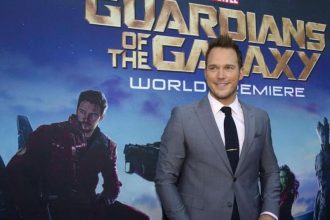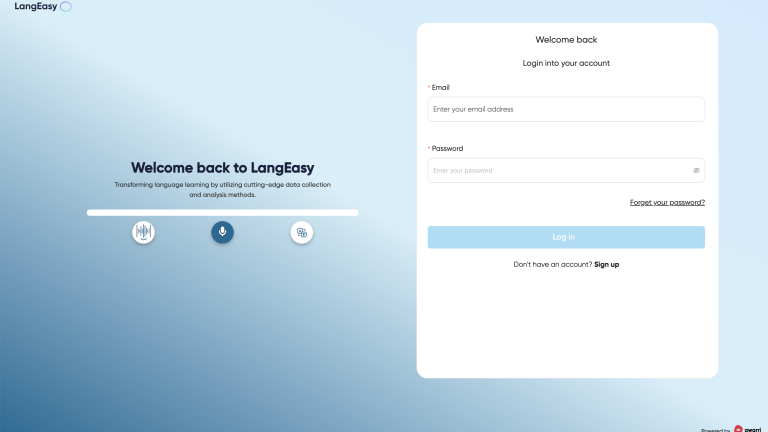Earlier this year, Nigeria’s technology minister, Bosun Tijani, announced that the country would build its own large language model, trained in five low-resource languages and accented English. This LLM, he said, would help increase the representation of Nigerian languages in the artificial intelligence systems being built around the world.
Tijani said the project would be a partnership between the nonprofit Data.org; two government bodies, the National Information Technology Development Agency and the National Centre for Artificial Intelligence and Robotics; and Awarri, a Lagos-headquartered startup.
Victor Famubode, who has worked in Nigeria’s AI industry for nine years, told Rest of World that Tijani’s announcement was the first he had heard of Awarri. “The initial thought was, ‘Can an Awarri handle it?’ But … it just shows that local companies of that kind, it is important to promote them.”
Awarri co-founders and serial entrepreneurs Silas Adekunle and Eniola Edun started the company in 2019. Part of the company’s mission is to help Nigerians find representation in the AI industry, they told Rest of World.
Some AI and tech experts said they were uncertain if a small startup was the right choice for the government to partner with for a task of this scale. Others told Rest of World Awarri has the potential to be the next OpenAI.
“Awarri is a little-known entity, but so was OpenAI about two years ago,” said Ehia Erhaboh, co-convener at AI in Nigeria, a Lagos-based consulting firm. AI is a new global phenomenon, and new companies should be expected, he said. “The focus for me is not about the newness of the entity but the experience of the founders.”
“Awarri is a little-known entity, but so was OpenAI about two years ago.”
Before co-founding Awarri in 2019, Adekunle and Edun were both involved in the gaming industry. Edun co-founded a gaming platform called Gamr in Lagos. Adekunle rose to fame in 2017 when his venture, Reach Robotics, signed a “dream deal” with Apple for the distribution of its gaming robot MekaMon. Awarri later acquired the rights to MekaMon and helped bring the robot into some Nigerian schools to help children learn computer science and coding skills, according to Edun.
In November 2023, Awarri launched a data annotation lab in Ikorodu, a highly populated suburb of Lagos. The lab was inaugurated by Tijani, and was poised to be an AI talent development hub, according to local reports.
The lab employs over 100 workers, who are responsible for gathering and annotating data, creating language models, and developing AI apps, Edun told Rest of World. “We have had a few projects that we’re doing in R&D and these include the large language models [and] a lot of different things that we can’t announce publicly yet,” said Adekunle. “And this is one project that the government has seen and developed interest in and showing their support.”
In April, Awarri launched LangEasy, a platform that allows anyone with a smartphone to help train the model through voice and text inputs. LangEasy gives users sentences to read out loud, and asks them to save the audio on the app. The app will help crowdsource data for Awarri’s LLM, Adekunle said.
He said that while Awarri is building its model from scratch, it has also been training OpenAI’s GPT-4 foundation model with its data set. “We exist as an ecosystem globally. You need that to be able to accelerate your research and development. [In] parallel, you build from scratch because there are nuances to our languages … that other models may not have been able to capture,” he said.

https://www.langeasy.ai/
Awarri currently works with data collectors across Nigeria who gather text and voice samples through the app, according to Edun.
She said the first version of the LLM will be trained on 24,000 hours of audio, while the second will need 500,000 hours. Moses Daudu, a senior AI engineer at Awarri, told Rest of World that text token parameters will run into billions. “[We are] targeting 10 billion tokens for the pre-training, and for the fine tuning we’re targeting 600,000 instruction samples for the first version,” he said.
Despite the founders’ history and relationship with the government, experts told Rest of World it’s hard to conclude if Awarri is the best stakeholder for the project.
“I’ve been familiar with the founder regarding his prior work in robotics, and believe he has the vision to execute this work,” said Chinasa Okolo, fellow at the Brookings Institution, a U.S. think tank. “At the moment, I don’t believe that Awarri has the talent yet, but I know they’ve been actively recruiting over the past few months and [I] have seen some of their job ads.”
Okolo believes that Nigeria’s infrastructural deficit might also slow down the project. “Nigeria has that human capacity to build out the model, and potentially sustain it. But I think that the infrastructure is really the biggest roadblock to that,” she said.
“It will never hurt to have a local language database.”
Awarri has so far been funded through a pre-seed round from undisclosed investors. The company wouldn’t confirm whether it planned to make its LLM technology open-source or make it available to developers and others for a fee. “There will be elements of open-source, but we are a private company so we need to stay alive,” Adekunle said. “What I can promise is that it will be accessible in a way that’s fair and takes into consideration people’s commercial capabilities.”
Both Awarri and the government will need to set clear guidelines for how the data will be stored and used, according to Kola Tubosun, a Nigerian language scholar, who has helped Google introduce the Nigerian accent to some of its products. “When you’re getting the public to give their voice for free, will the database of that voice be available for everyone to use for free, to be able to build commercial purposes, or for research purposes, or to build things that people can benefit from?” he said.
The Federal Ministry of Communications, Innovation, and Digital Economy did not respond to Rest of World’s queries on how the model would operate after completion, who would own it, and whether it would be open-source or charge a fee.
Despite this, Fu’ad Lawal, managing director at Archiving, a platform that digitally preserves old newspapers and magazines, believes that the project is an experiment with no downsides.
“The fundamental nature of this frontier tech that the world is yet to understand is that whatever future we want to create out of it will be from experimentation,” Lawal told Rest of World. “It will never hurt to have a local language database. There’s no downside, unlike many experiments. It will benefit the country greatly if they succeed and will only be a disappointment if they fail.”






